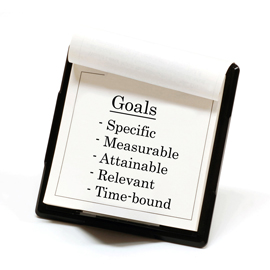Setting strong goals is an integral part of treatment for alcohol abuse in Princeton Junction. Your recovery program is a long road, and your goals are what will keep you moving forward. A goal is the light at the end of the tunnel, but once you reach that goal the process doesn’t stop. The purpose of addiction recovery is to achieve a state of wellbeing, a lifestyle filled with healthy choices and coping mechanisms that will prevent you from falling back into addiction.
Goals are what personalize your addiction treatment program. Everyone enters their recovery program at a different point in life, and a different point in the recovery process. Some return to recovery programs after years of following addiction treatment plans, hoping to renew their focus and find new motivation. Others turn to recovery programs at the recommendation of a friend, family member or co-worker who want them to seek help for addiction. Still others enter recovery when they feel they’ve hit rock bottom, when the world as they know it has changed completely and addiction treatment is the only way they can look up again.
Whatever guides you to addiction treatment will shape your goals, and your goals will further shape your recovery program. Goals are not simple wishes, however. While you may know the core of what constitutes your goals, you will need to flesh out and develop them. Goals require planning, commitment and accountability to be successful.
Here are a few tips for creating your addiction treatment goals:
- Be open: When you create your goal, be open about it. Tell friends, family members or co-workers who you trust about your new goals and encourage them to hold you responsible for them. You shouldn’t share your goals with those who won’t be encouraging of them, but keeping them to yourself will prevent social accountability.
- Be precise: Vague goals are easy to lose track of. Be specific about the goals you are setting, including when you hope to reach them and how you are planning on doing so. You should always know how well you are progressing towards your goals, and this is easier to do when your goals are plainly defined.
- Be realistic: Your goals should aim high and be honest, but they shouldn’t be overwhelming. Focus on making one or two small changes in your life at a time and work your way up to your larger goals. Abstinence is the ultimate goal, so focus on the steps that will take you there.
While your goals are personal to your recovery program, you will not need to come up with them on your own. Your addiction specialist can work with you to set your goals and help you develop a strong plan of action that will help you to work towards them.

